Isopropyl alcohol, SD alcohol, Cetyl alcohol, Cetearyl alcohol and plain old alcohol in skincare products.
They show up again and again, from organic moisturizers to body washes to cleansers and toners.You have this feeling they’re probably not good for your skin.
Is alcohol good for your skin?
You have this feeling they’re probably not good for your skin.
You may think of rubbing alcohol, and how it evaporates after you apply it, leaving your skin dry and tight.
Are these ingredients like that? Or are they something entirely different?
Read on to find out exactly which alcohols ingredients to avoid in skin care, why some won’t hurt you, and why others will not only dry out your skin, but accelerate aging and damage.
The Potentially Dangerous Alcohols
Most alcohols in skincare are similar to pure alcohol, except they have been mixed with “denaturing” agents or additives to make them taste and smell bad—basically, to discourage people from consuming them! These additives are often liquid petroleum derivatives man-made in the laboratory. So we’re talking about regular alcohol, here, just with some additions, like food with a flavoring.
Some examples include:
- Ethanol
- Denatured alcohol
- Ethyl alcohol
- Methanol
- Benzyl alcohol
- Isopropyl alcohol
- SD alcohol
Manufacturers like using these types of alcohols in skin care for several reasons:
- Solvents: They work as “solvents” in any formula, which means they help all the other ingredients, particularly the ones that aren’t usually soluble in water, to mix together nicely so the end product is a smooth cream or liquid.
- Astringents: In some products, like toners and cleansers, alcohols are included to help shrink pore size and tighten skin.
- Enhance absorption: Alcohols help the skin to better absorb the other ingredients in any formula, so manufacturers like putting them in moisturizing creams to facilitate penetration of the ingredients.
- Preservatives: Alcohols have germ-killing properties (which is why nurses swab your skin with it before giving you a shot), so they’re sometimes used as a preservative in cosmetic products.
- Fast-drying: You know how regular alcohol gives you that cooling feeling? That’s because it evaporates quickly. Manufacturers like that because it makes things like hairspray fast-drying.
Why to Avoid Alcohols in Your Skin Care
As you may have suspected from the first, these types of alcohols are drying and irritating. But there are more reasons why you’ll want to avoid them in your products:
They’re Drying Your Skin
These alcohols, in general, are drying and irritating to the skin. (Think about how your hands feel after you use hand sanitizer—most of which contain a good amount of alcohol.) They strip away the skin’s natural acid mantle, dehydrating cells and potentially increasing the appearance of fine lines and wrinkles.
They’re dangerously Irritating
According to a 2008 study on ethanol and skin, “Ethanol use is associated with skin irritation or contact dermatitis….” They added that “up-to-date risk assessment of ethanol application on the skin and inside the oral cavity is currently lacking.”
They Disrupt Barrier Function
The skin has a natural barrier that helps seal in moisture and protect from environmental stressors and other damaging elements. Alcohol disrupts this barrier, leaving the skin more vulnerable to attack from irritants, allergens, bacteria, and viruses.
In a 2003 study, scientists noted this to be true in doctors who were using alcohol-based cleansers to get germs off their hands. They found that it removed “barrier lipids” (healthy fats in the skin) and caused the skin to lose moisture and hydration. Evidence showed that modern foaming liquid cleansers were the major offender, and that replacing them reduced hand problems among hospital staff.
They May Damage Skin
Shocking, right? But laboratory tests on skin cells have actually shown that ethanol (alcohol) can be toxic to them. In 2002, for example, researchers treated skin cells with different concentrations of ethanol.
They found that ethanol damaged the cells, and may also induce “apoptosis” in skin cells—which means the cells died after exposure. Granted, this is a laboratory study, and the results may be different when tested on living, breathing skin, but the study doesn’t leave us with a fuzzy feeling.
They Can Make Acne Worse
Many anti-acne formulations contain alcohol because of its germ-killing ability and the way it helps clear oil from the skin. These temporary benefits, however, aren’t worth the long-term problems.
A 2011 study, for example, found that over time, acne formulations with alcohol actually exacerbate the condition, because they cause irritation and dryness. You know how acneic skin acts when it’s overly dry—it just produces more oil, leaving you with a worse problem than you had when you started.
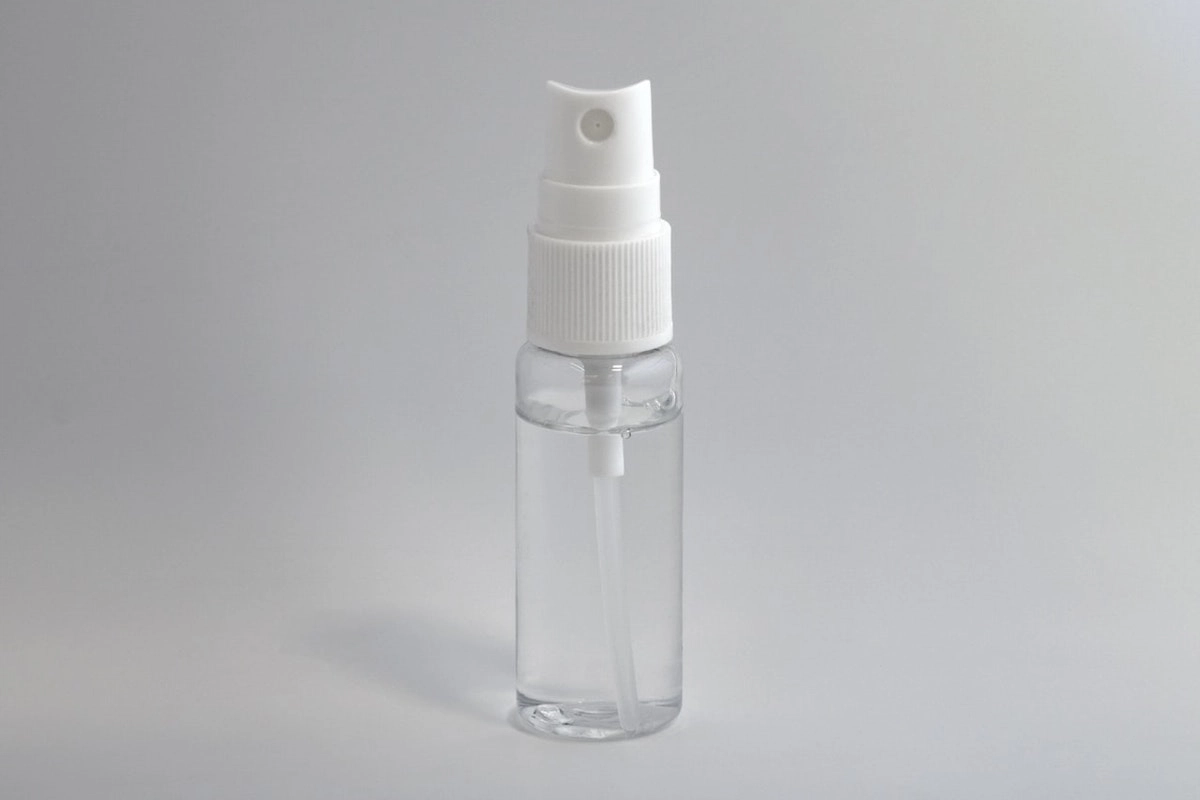
The Fatty Alcohols in Skincare
Called “wax” alcohols or “fatty” alcohols, this second group of alcohols in skin care that have completely different properties from those we mentioned above. These are typically derived from natural fats and oils, often from coconut and palm oil. They’re found in nature as waxes, so they’re rich in skin-healthy fatty acids. They can also be derived from petroleum sources, though, or made in the laboratory.
Some examples of these include:
- Glycol
- Cetyl alcohol
- Stearyl alcohol
- Cetearyl alcohol
Manufacturers like to use these alcohols for the following reasons:
- Emulsifiers: These alcohols work as “emulsifiers,” which help mix water with oils to create nice, smooth creams and lotions.
- Emollients: Since these ingredients are naturally moisturizing, they’re included in many creams and body lotions to hydrate the skin.
- Thickeners: People like thick, rich creams. They just feel good when you put them on. Fatty alcohols can help thicken a formula to the right consistency.
These alcohols are usually portrayed in more positive light than the others, as they are not drying or damaging. On the contrary, fatty alcohols in skincare products help to moisturize skin because of the natural fatty acid content.
Those with sensitive skin, however, may want to avoid these as well. Why? They have a reputation for causing irritation in sensitive folks. In a 1990 study, for example, researchers applied emulsifying agents, including cetyl stearyl alcohol, to real human patients. A total of 54 out of 737 experienced reactions to them—redness, inflammation, and the like.
A later study with five fatty alcohols on 146 patients showed similar results, with just over 23 percent of the participants showing reactions to the alcohols—mostly to oleyl alcohol. Note that these were patients who were already identified as having suspected reactions to cosmetic products, so if this describes you, it may be best to avoid alcohols altogether. A later 2011 study also referred to the possibility of reactions with coco- and lauryl glucosides, which are mixtures of fatty alcohols and glucose. (You’ll see these ingredients in some standard cleansing products and even in sunscreens.)
There have also been some reports that these fatty alcohols like stearyl alcohol, cetearyl alcohol in skin care may clog pores, exacerbating acne breakouts. A 1989 report on the pore-clogging characteristics of several cosmetic ingredients showed this to be the case, at varying degrees. Cetearyl alcohol combined with ceteareth 20 alcohol—as well as isocetyl alcohol—had higher comedogenic ratings than cetyl alcohol alone or cetearyl alcohol alone, though all showed some pore-clogging activity.
If you’ve been using so-called “gentle” skin care products that contain these ingredients and you’ve noticed more pimples or blackheads, this may be why.
Bottom Line
We should all stay away from the first set of alcohols—the ones that are drying and damaging. The fatty alcohols probably won’t hurt most of us, but you already know what we’re going to say—we like using natural ingredients to make your skin look its best and are much less likely to cause any reactions. And by reducing alcohols in your skin care, you can also improve the smoothness of your skin, as well.
Our line of high quality skin care collections harnesses the power of nature and delivers results without any of the harsh chemicals that can negatively impact your skin’s vitality.
Sources:
Manuela G. Neuman, et al., “Ethanol signals for apoptosis in cultured skin cells,” Alcohol, April 2002; 26(3):179-190, http://www.sciencedirect.com/science/article/pii/S0741832902001982.
Lachenmeier DW, “Safety evaluation of topical applications of ethanol on the skin and inside the oral cavity,” J Occup Med Toxicol, November 13, 2008; 3(26): http://www.ncbi.nlm.nih.gov/pubmed/19014531.
Kownatzki E., “Hand hygiene and skin health,” J Hosp Infect, December 2005; 55(4):239-45, http://www.ncbi.nlm.nih.gov/pubmed/14629966.
Ceilley RI, “Advances in topical delivery systems in acne: new solutions to address concentration dependent irritation and dryness,” Skinmed., February 2011; 9(1):15-21, http://www.ncbi.nlm.nih.gov/pubmed/21409958.
Tosti A, et al., “Prevalence and sources of sensitization to emulsifiers: a clinical study,” Contact Dermatitis, August 1990; 23(2):68-72, http://www.ncbi.nlm.nih.gov/pubmed/2145129.
Tosti, A., et al., “Contact dermatitis from fatty alcohols,” Contact Dermatitis, November 1996; 35(5):289-9, http://www.researchgate.net/publication/14201921_Contact_dermatitis_from_fatty_alcohols.
An Goossens, “Contact-Allergic Reactions to Cosmetics,” Journal of Allergy, 2011, Article ID 467071, 6 pages, http://www.hindawi.com/journals/ja/2011/467071/.
James E. Fulton, “Comedogenicity and irritancy of commonly used ingredients in skin care products,” J Soc Cosmet Chem., November/December 1989; 40: 321-333, http://journal.scconline.org/pdf/cc1989/cc040n06/p00321-p00333.pdf.
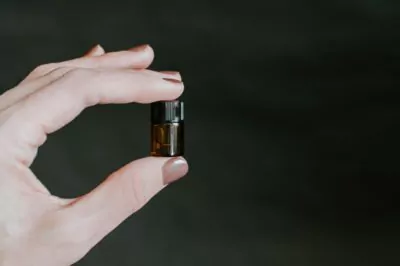

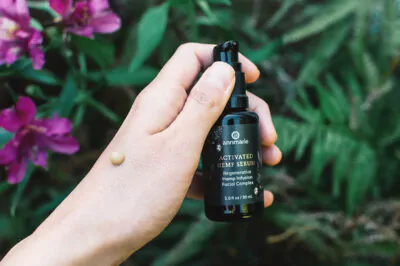
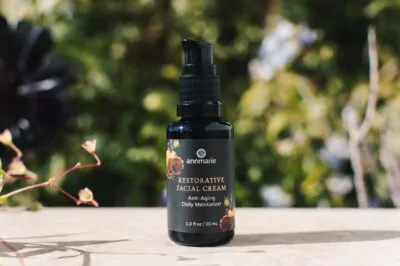
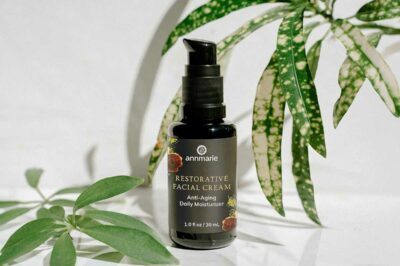



I was wondering why the cetyl alcohol was in my over night mask from the luxury “famous yellow cream” brand. This garbage was in the product not just once but 3 times and made my face badly breakout!
very interesting information but my big concern is the palm oil we really need to stop using this and stop destroying the rain forest and the orang-utans environment
Hello & Thank you for your informative article.
I have an allergy to Alcohol in any form. It is Very hard to find products that do not contain some form of alcohol which saddens me.
Hopefully, someone, someday will find an alternative.
Tami M.
I would also like to know if phenethyl alcohol is considered ok for make-up. I have been considering purchasing a base foundation that seems safe otherwise when I check in the ingredients but when I read your blog post I wanted to be sure.
What are your thoughts?
Kind regards
Angela
P.S I love your products. ????
Hi there,
We don’t suggest using alcohol-based products. For a great foundation, check out our Minerals by Annmarie Foundation!
Thank you so much for all the wonderful information you provide us with. I am so grateful.
Hey there! Really happy to see such a clear article. I was wondering, if the lable simply says “alcohol” is there any way of knowing which kind of alcohol it is? Or should I just assume it’s one of the dangerous ones? (I got a day cream as a present and all ingredients are really nice and natural but then it says “alcohol”)
I am extremely sensitive to ethanol products. Not like sensitive skin. Ethanol products damage my brain. Ethanol is listed as a neurotoxin. So I know ethanol. Also denatured alcohol. But I don’t know what other things are likely the same. I can’t process much information due to the brain damage. Makes it very difficult to find what is ok. I ordered a mitacide for my kitten’s ear mites. Safe natural. Right. Kicked my butt on just opening the bottle. American keeps discontinuing things that work for me and allowing toxic crap. I am allowed to use petroleum products on my face, but not lanolin? I can’t find any American product that I can use to clean my face unless I just use some kind of oil. I found the best one from New Zealand, but it now has also been discontinued.
Sorry I ramble. Brain damage. Thank you.
Is phenethyl alcohol ok?
Thanks for sharing this! I will also share it with my friends. Thanks! Simo